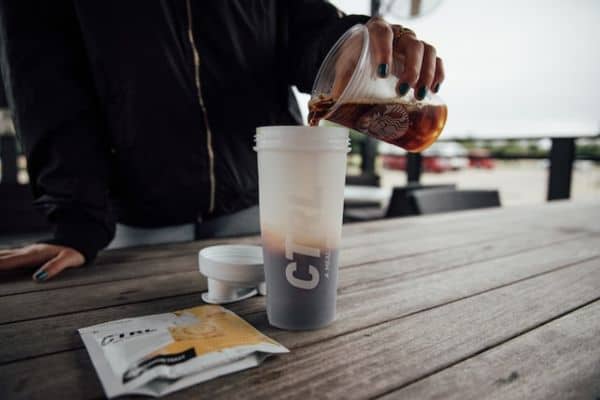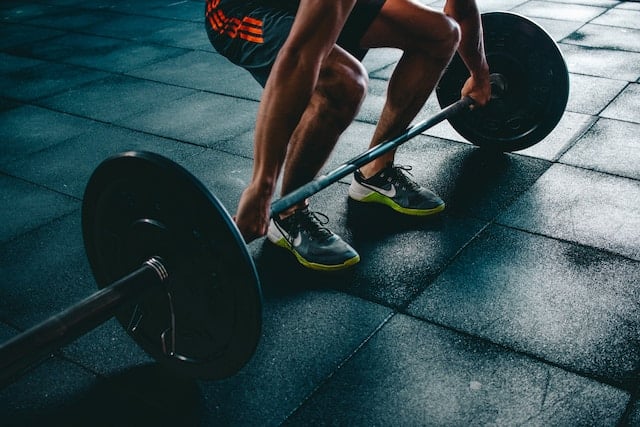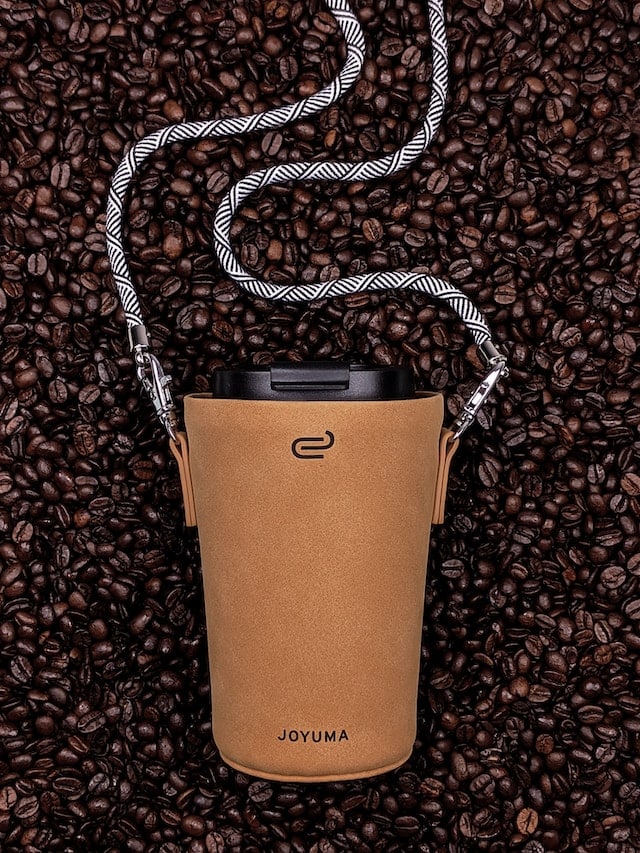
If you’re like me and you stay active, then you’re always thinking about how to get a better workout. Mixing and matching different regimens and fitness techniques is part of the fun of staying in shape and getting the best out of yourself.
One way many people consider to improve performance is through supplementation before, during and after workouts. Coffee is an option you will see mentioned a lot.
If you’re not an athlete who regularly gets their pre and post workout caffeine from anhydrous caffeine tablets or powder, sports drinks, or carb gels and gums, your most likely source of caffeine is coffee.
But is the combination of coffee and a workout a good idea? And if so, which is best, coffee after a workout or before it?
As a pharmacist and athlete myself, I was curious. Here’s the quick facts of what my research uncovered.
What’s in coffee?

Photo by Mike Kenneally
Coffee is a phenomenally popular beverage around the world. Not only does it taste great and smell divine, but it also has health benefits to support its intake.
We know that coffee has metabolic and cardiovascular benefits that are the result of antioxidant compounds like chlorogenic acid, diterpenes, caffeic acid, cafestol and caffeine.
What does coffee do for your workout?

Photo by Victor Freitas
What’s interesting is there is strong evidence from many studies that show caffeine in coffee is an ergogenic aid or has performance enhancing effects.
For example, this review showed significant improvements in endurance performance and perceived exertion in endurance athletes who took coffee 45 minutes before their workouts.
Even better news is that coffee and caffeine produce the same performance enhancing effects as well. In this randomized single blind study, researchers found 5 mg/kg of coffee or caffeine produced similar improved effects vs decaf and placebo.
So you can get your caffeine from any source that is best for you and still get the same benefits of stronger workouts for longer without feeling fatigued as quickly.
How does coffee and caffeine work on the body?

Photo by JOYUMA
So the scientific community used to believe that the source of caffeine’s ability to enhance performance was by increased fat breakdown and enhanced sympathetic nervous system activity (the fight or flight response system).
Now we know that in fact caffeine unleashes its performance enhancing effects by blocking adenosine receptors. This results in reduced pain and exertion perception, improved motor recruitment, and muscle contractions.
It’s not hard to imagine how you can perform better if more of your muscles are recruited, operating efficiently and you don’t feel as much pain or fatigue!
Caffeine effects on blood sugar
During a workout, your body relies on glucose as a primary source of energy. It will also go into its sugar storage, also known as glycogen to get more energy especially if the workout is long and exhaustive.
Caffeine and other components in coffee have beneficial effects on your blood sugar metabolism. This means more efficient breakdown of glucose, less of it hanging out in your blood and more insulin to move it where it needs to go. Caffeine will also help replenish the glycogen stores post workout.
Is coffee after a workout good?

Photo by Tamara Bellis
Drinking coffee after a workout turns out to be beneficial as well. Instead of helping with performance during the workout itself, caffeine helps to improve recovery.
In one study by Loureiro, et al., the researchers found that the use of caffeine + carbohydrates in the form of milk was significantly better at restoring post workout muscle glycogen stores within 4 hours compared to just carbohydrates by themselves.
This means drinking coffee with some milk after a workout could be helpful in recovering your sugar storage. This is especially helpful if you compete or train more than once a day.
Plus, the antioxidants in coffee are great for neutralizing the free radicals produced after intense exercise, which helps with overall recovery.
How much caffeine should I take during a workout?

Photo by Heather Ford
You may need to tease out how much caffeine is right for you to consume. Every person and athlete is different so it may vary. Consider starting slow and working your way from there.
Many of the studies we looked at mentioned doses of 2-5 mg/kg of caffeine given one hour before workout. This translates to about 1-3 cups of coffee containing an average of 100 mg of caffeine per cup.
But it’s probably a good idea to consult with a nutritionist or performance based sports medicine physician to get customized recommendations.
Side effects of coffee before after workout
Caffeine can have hemodynamic changes like increased blood pressure and heart rate. Great for athletes, but may be an issue if you’re on cardiovascular medications like for high blood pressure. So consider talking with your doctor before starting any caffeine-based regimen.
Since the effects can vary from one individual to another, consider starting small and pay attention to your body. Some may experience the irritability, tremors, and stomach issues of caffeine while you may not. So do what’s right for your body.
Overall verdict: Should you drink coffee before or after a workout?
The data looks pretty clear and convincing that consuming coffee or caffeine can improve endurance and performance during workouts. After the workout, caffeine will help you recover faster as well.
I personally know other pharmacists and nurses who train for marathons who swear by the efficacy of caffeine in their training.
The problem with drinking coffee as your source of caffeine is the difficulty of consuming a consistent amount of caffeine. Because of the source of beans, roasting, and brewing methods, the caffeine content can vary from one cup to another. In addition, you have to consume a large amount of fluid, which may or may not be ideal.
Instead, consider anhydrous caffeine. The advantages are you can measure out a consistent dose, mix it in some fluid and stay in control of how much caffeine you consume. The drawback is it’s nowhere near as enjoyable and pleasant as the sensory experience you get from coffee!
FAQs
Is it better to drink coffee before or after a workout?
Most research shows that you can consume coffee or caffeine before and during your workout and still reap the benefits of improved performance. Drinking coffee after a workout won’t benefit your workout since you’re already finished, but it will help your muscles recover their glycogen stores so you are ready to do another workout sooner.
Can I drink coffee a day after workout?
Yes, you could drink coffee 24 hours after your workout and for the most part you should be fine assuming you’re a healthy individual. But if you’re looking for the post workout benefits caffeine offers, you likely won’t get it that far out. Most of the studies tested caffeine’s effects within 4 hours of the workout.
Can I drink coffee after workout at night?
If you workout at night and drink coffee post workout, you will likely get the same glycogen recovery effects as well. But you do have to account for the stimulatory effects that could keep you up at night. This may interfere with your sleep and thus undermine your recovery.
Coffee Has Never Read This Good!
Sign up for a FREE newsletter to the best home brewing tips and guides
Thank you for subscribing to The Cup Coffee House Crew! There's a surprise in your Inbox 🙂
Something went wrong.
- About the Author
- Latest Posts

“Jules” is a pharmacist by day and investor, writer, and health nut by night. When he’s not sipping on some coffee laced with MCT oil during an 18 hour fast, he is writing about how to get your coffee grind on or playing Monopoly with his 2 boys and wife. Ahh…life is good!
